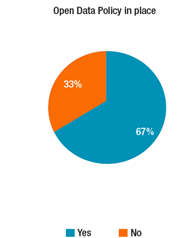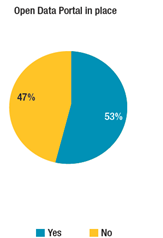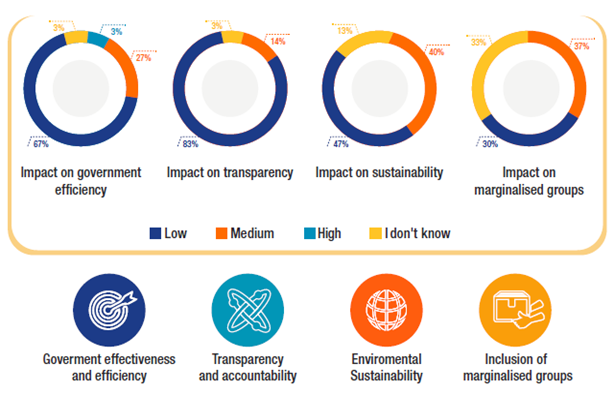Open Data in the European Union Neighbourhood
Understood as the 'new oil' that makes societies and economies run more smoothly, data remains until now a resource whose potential is not tapped to its fullest. Numerous studies have measured the impact of data for economic, political and societal development, with several others pinpointing the importance of Open Data for economic growth. Open Data is seen as a driver for economic growth and an enabler for transparency and accountability, as well as innovation and knowledge.

The EU Neighbourhood is keen on fast-forwarding on Open Data. However capacity building and awareness raising are needed to boost Open Data practices in the neighbourhood regions. These are some of the conclusions of the recently published report on Open Data in the EU Neighbourhood. This study aims at broadening the EU28+ perspective by taking a look at Open Data developments at the East and South of EU borders. It provides a high-level assessment of the state of play of Open Data in the EU Neighbourhood and highlights the achievements as well as the potential room for improvement in the neighbourhood countries.
Three country groups represented the focus of the Open Data exercises: Western Balkan and Turkey: Albania, Bosnia and Herzegovina, the former Yugoslav Republic of Macedonia, Kosovo, Montenegro, Serbia, Turkey; Neighbourhood South: Algeria, Egypt, Israel, Jordan, Lebanon, Morocco, Palestine, Tunisia; and Neighbourhood East: Armenia, Azerbaijan, Belarus, Georgia, Moldova, and Ukraine.

The expectations with regard to the benefits of Open Data in the EU Neighbourhood are high, with the neighbourhood countries perceiving (Open) Data as an innovative instrument to tackle many of their challenges. Beyond a doubt, Open Data has the potential to do so. However in order to stand up to its hype, Open Data needs to be grounded in a solid foundation.
As the report illustrates, this foundation appears to be still missing in almost half of the EU Neighbourhood, where only two thirds of the countries have an Open Data policy in place and only half of the countries have set up an Open Data Portal at national level.
However, as also highlighted by the European Data Portal's report on Creating Value from Open Data, these elements are pivotal to fostering sustainable Open Data practice. Both an Open Data policy as well as the set-up of Open Data portals represent the basic pillars for Open Data development in any national context.
Diving one layer deeper, the report also highlighted the stumbling blocks that the EU neighbours encountered in their Open Data journeys. Similar to the EU Members States, the EU neighbourhood countries are facing the same challenges to Open Data development, albeit to different extents. Surprisingly enough, the political will towards Open Data promotion is stronger in the EU Neighbourhood compared to the EU28+. This appears to be fuelled by an overall eagerness to 'catch up' with Europe. Furthermore, the results also underlined the fact that the technical, legal, financial and political aspects effect to different degrees the publishing and re-use of Open Data. Whereas public administrations in the EU Neighbourhood are believed to struggle most with technical and legal aspects, a lack of awareness and availability of data appear to be the most frequently mentioned obstacles on the re-use side.

In the light of the findings, the report concludes that immediate action is needed to raise awareness and increase capacity in the EU Neighbourhood, in order to ensure value creation through Open Data. The report offers a 'practical guide' to Open Data development for the EU Neighbourhood countries, providing them with six steps to take in the short and medium term.
Do you want to find out what these steps are and read more about the actions that the EU Neighbourhood countries have already taken to foster sustainable Open Data practices in their national contexts? Then check out the full report and dive deeper into the Open Data success stories of the EU Eastern and Southern neighbours!
